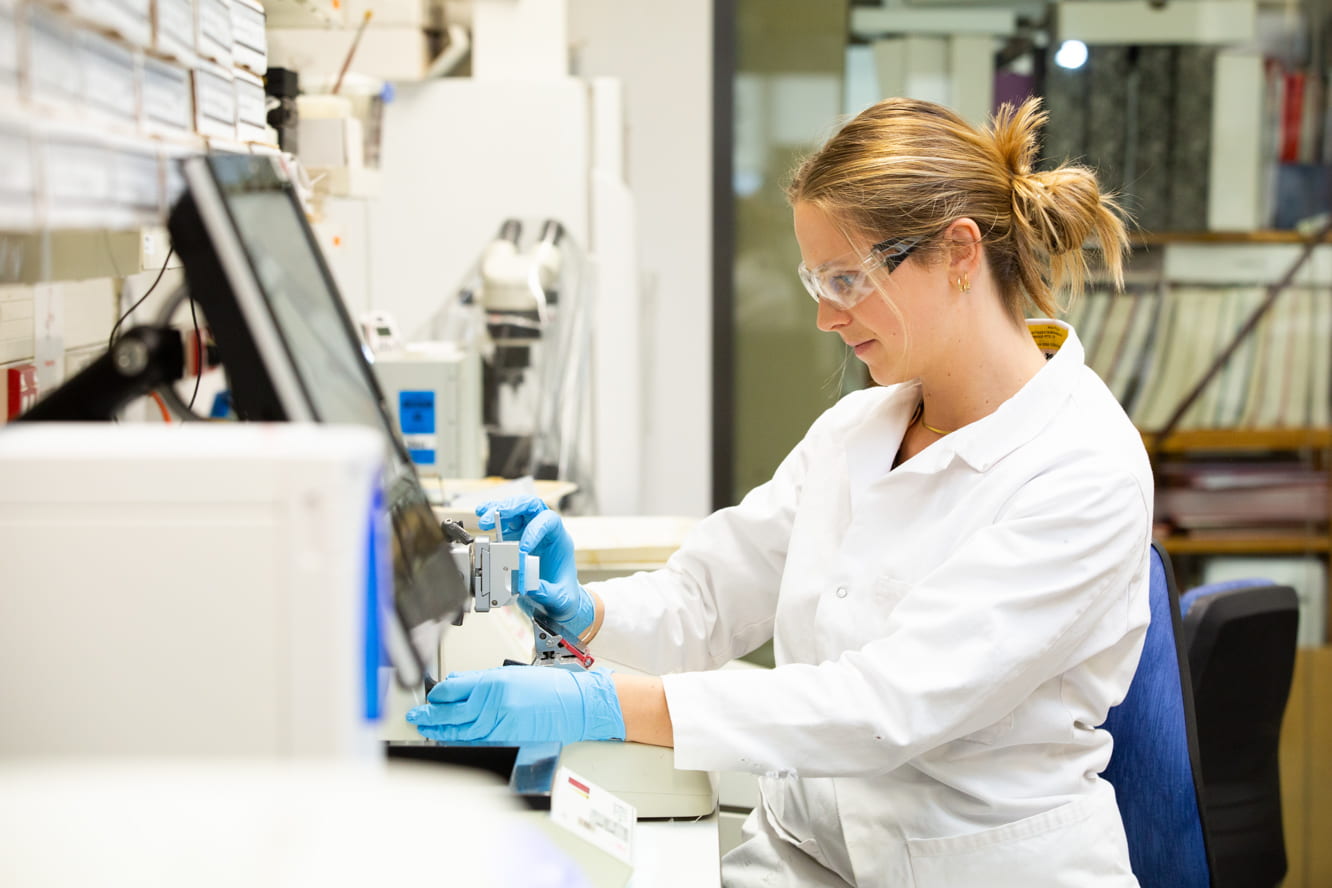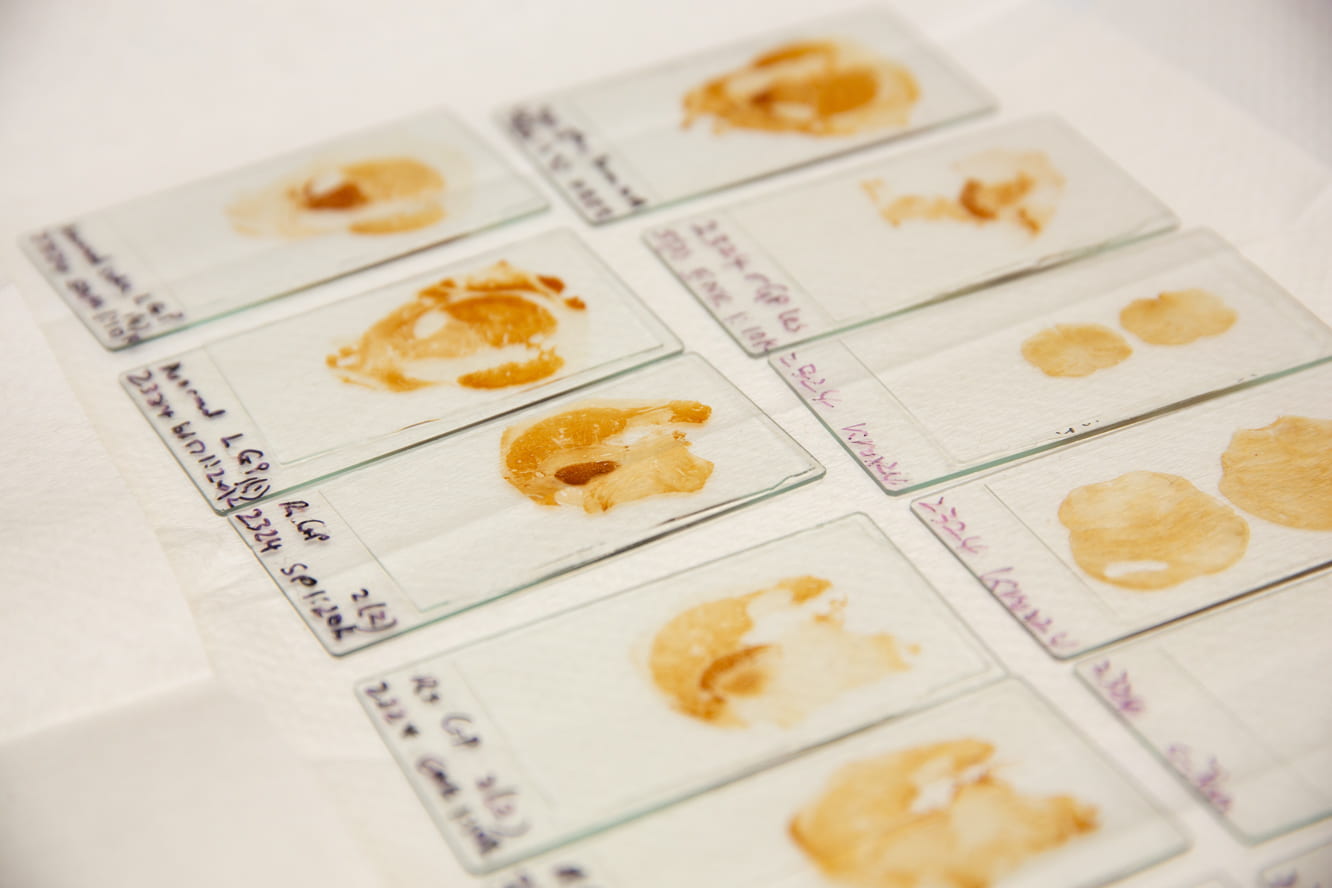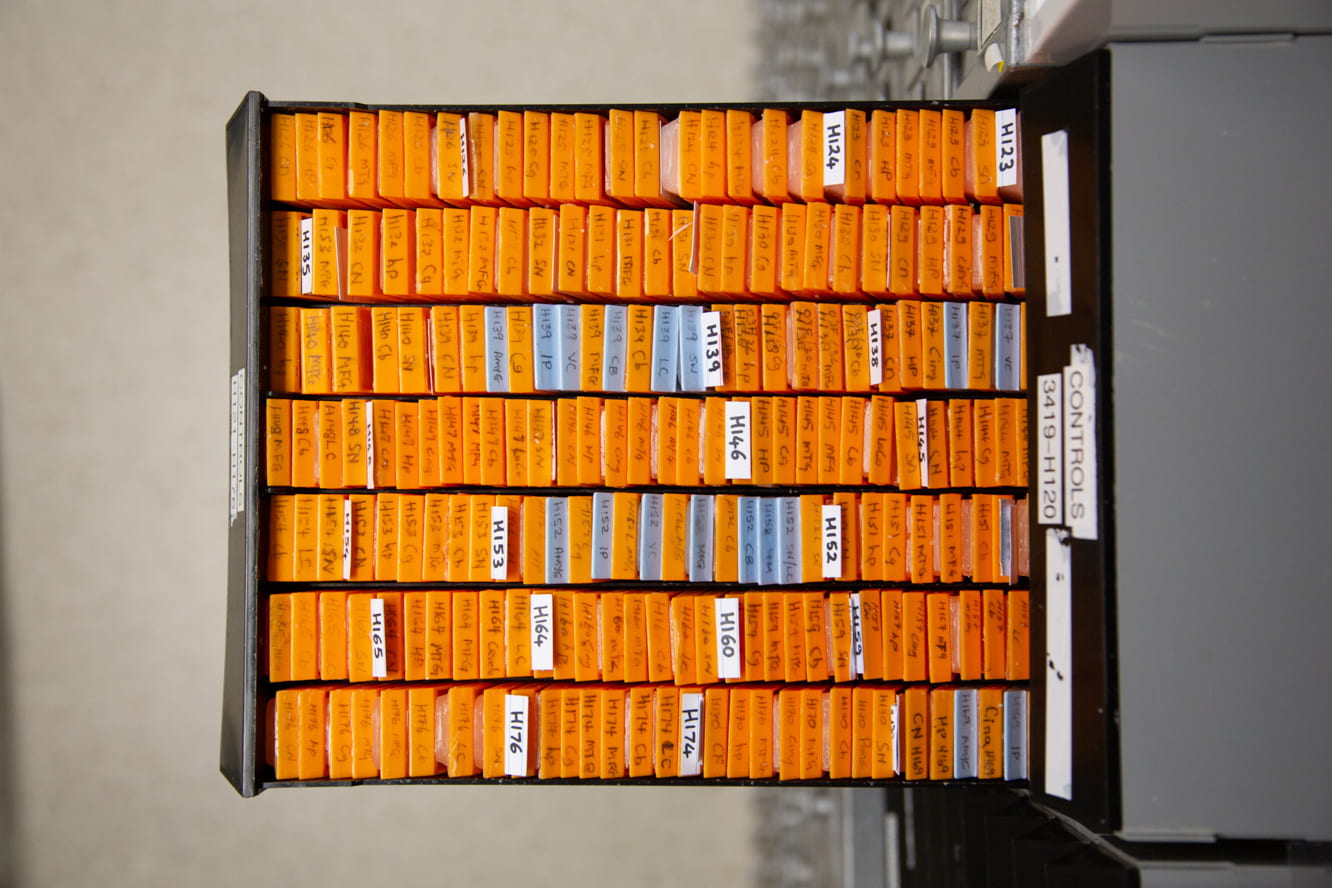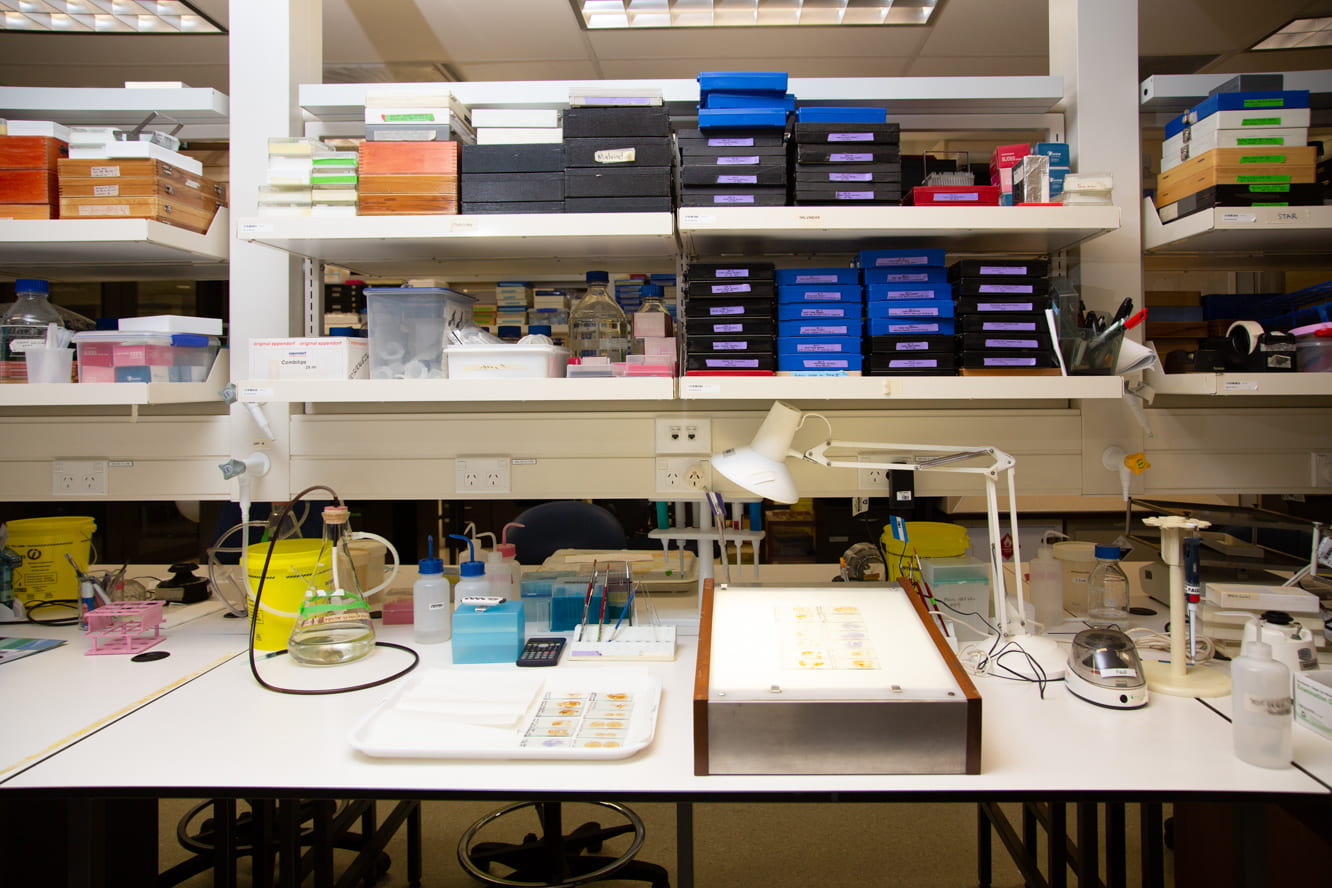Our Research
The studies have the support of the Huntington’s Disease Association of New Zealand, the Alzheimer’s Disease and Related Disorders Society (ADARDS), the Parkinsonism Society of New Zealand and other neurological associations. A close working relationship has been established with these association.
Brain Chemistry Studies
One of the major advances in our understanding of the brain in recent years had been the demonstration that over 100 different neurotransmitters may be present in the brain. In particular, disease such as Parkinson’s disease and Huntington’s disease there are specific losses of different groups of neurons and subsequent reduction in the abundance of the associated neurotransmitter that leads to the major symptoms. In order to understand what these changes are we need to understand the brain’s chemistry. To this end we are undertaking a large number of studies to identify the different cell types present in each area of the brain and also which neurotransmitters they produce. As part of these studies, we are also identifying the different regions that are connected within the brain. These are methodical studies that require the human brain tissue to be thinly sliced and stained using special antibody markers that enable the detection of multiple specific neurotransmitters and proteins to be visualised using a microscope.
Growing Brain Cells from Brain Tissue
Recent work in our laboratories have revealed that human brain cells can be kept alive in cell culture conditions for up to a year after someone dies and donates their brain to the Brain Bank. This exciting discovery allows us to trial drugs directly on the cells that are diseased and have been affected by a neurological disease. To carry out this technique the post-mortem delay must be minimal and the areas where cells remain alive in the brain must be removed and processed quickly to get optimal cell growth. These brain cell cultures hold great promise for understanding how diseases of the brain affect individual cells and will allow many new therapies to be trialled.
Genetic Studies on Brain Tissue
The genetic basis for neurological disease is a hot topic and has been critical for understanding why some people are affected by diseases like Huntington’s disease, Parkinson’s disease and motor neurone disease, and others are not. Performing studies to understand the genetic influence that allows one person to live a normal life without a neurological disease is of critical importance. We work with genetics experts at the Centre for Brain Research who are seeking answers to how some genes cause disease while others protect from disease. In addition, in order to study the effects of specific gene expression on human brain cells in culture, we undertake studies involving knocking genes out or expressing them at high levels in cultured human brain cells. We use the cultured human brain cells to test the effects of individual genes on the cultured stem cells.
Drug Discovery for Brain Disease
We have also teamed up with a group of medicinal chemists at the University of Auckland who are making potential drugs by using novel chemistry techniques. We are then able to screen them for toxicity and for efficacy in cell cultures including on diseased (Alzheimer’s, Parkinson’s and motor neuron disease brain) human brain cells grown from the brain post-mortem. The classification of the drugs and the targets they work on are diverse and the hope is that one or more of these drugs may one day become useful for slowing the progression of the disease.
Current Research Using
Human Brain Donations
Alzheimer's Disease
Alzheimer’s disease is a progressive mental deterioration characterised by dementia and loss of memory.
Huntington's Disease
Huntington’s disease is a rare, inherited disease that causes the progressive degeneration of nerve cells in the brain.
Motor Neurone Disease
Parkinson's Disease
Neurologically Normal Brain
Sports Related Head Injuries
CTE has been reported in former athletes from a range of contact sports, as well as in military veterans.
National and International Collaborations
Tissue from the Human Brain Bank is in demand all over the world. Over the years, many successful national and international collaborations have been developed with leading researchers including groups at:
- University of Otago, New Zealand
- Charite-Universitats medizin, Berlin, Germany
- University of Leiden, the Netherlands
- University of Gothenburg, Sweden
- University of Lund, Sweden
- University of Zurich, Switzerland
- Ecole Polytechnic Federale de Lausanne, Switzerland
- Roche Institute, Switzerland
- Babraham Institute, United Kingdom
- Kings College London, United Kingdom
- University of Cambridge, United Kingdom
- University of Cardiff, United Kingdom
- University of Oxford, United Kingdom
- University of Southampton, United Kingdom
- University of Wales, United Kingdom
- Harvard University, United States of America
- University of California Los Angeles, United States of America
- University of Tennessee, United States of America
- University of Washington, United States of America
- National Institutes of Health (NIH), United States of America
- University of British Columbia, Vancouver, Canada
- Peter Gilgan Centre for Research & Learning, Toronto, Ontario, Canada
- Adelaide Medical School, The University of Adelaide, Australia
- Max Planck Research Unit for Neurogenetics, Frankfurt, Germany
- University of Basque Country, Spain
Contact Us
For emergencies call 111 or visit your nearest hospital
For general inquiries:
+64 9 923 6072 – Mrs Marika Eszes, Brain Bank Manager
At time of death:
+64 21 287 8476 – Professor Maurice Curtis, Co-Director



